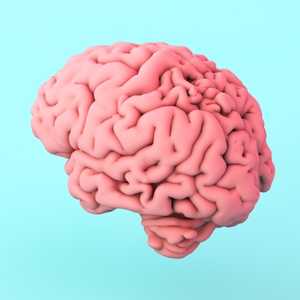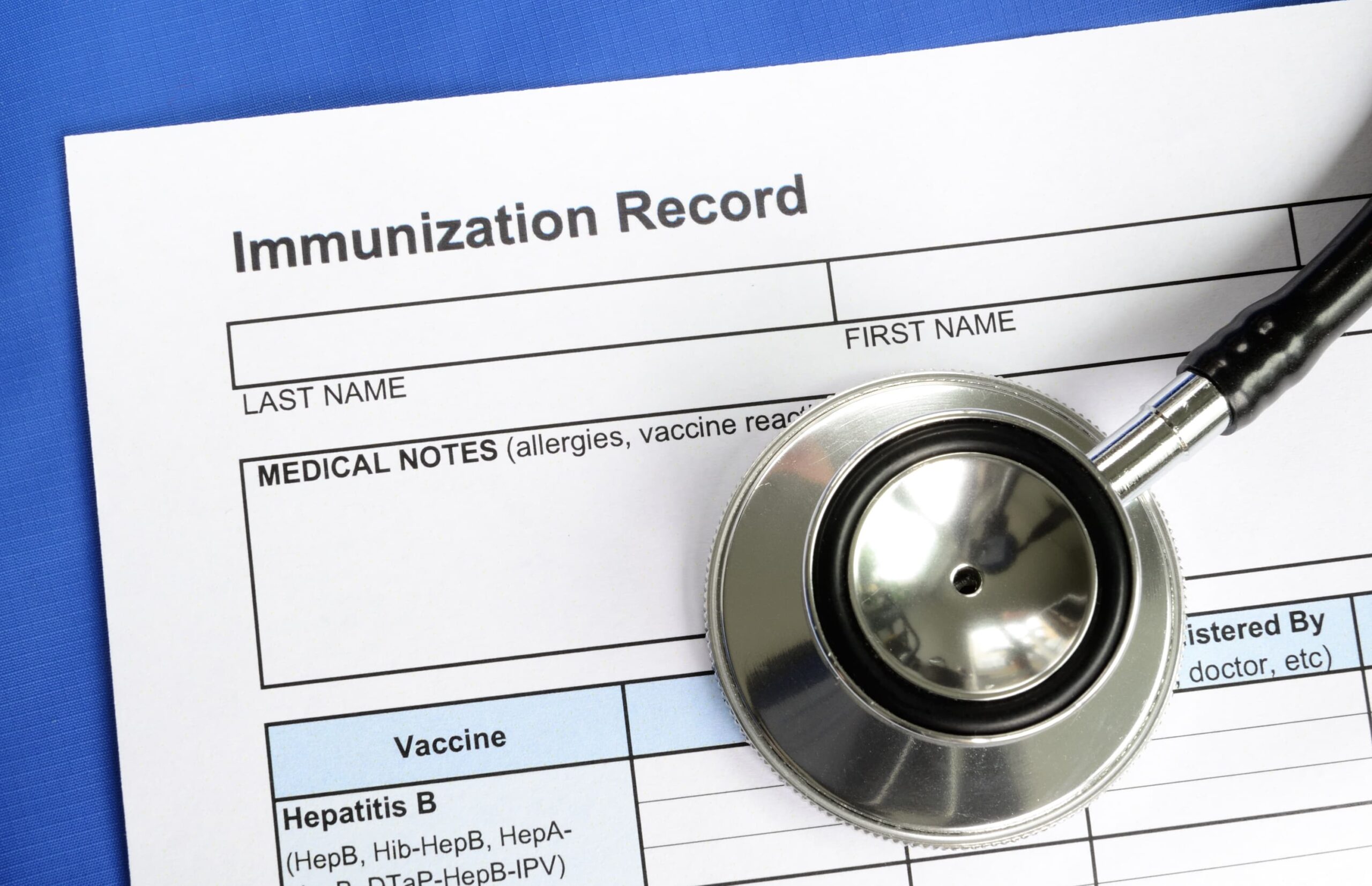Good nutrition is crucial throughout infancy and early childhood. Neurodevelopment requires a full complement of all essential vitamins, minerals, and nutrients working together. Current research shows that the good bacteria found in probiotics are essential for healthy brain development, too!
Though all essential nutrients are important for growth and development, some play larger roles in neurodevelopment than others. In this article, I highlight the most vital nutrients and supplements for brain development from conception to early childhood.
Omega 3 Essential Fatty Acids: EPA & DHA
Brains are mostly made up of fat. The types of fatty acids in the diet impact the types of fatty acids in the brain. Fatty acids like EPA & DHA make for a healthier, smarter, and more flexible brain.

Docosahexaenoic acid (DHA)
Approximately 90% of the polyunsaturated fatty acids in the brain are DHA and 10-20% of the total fatty acids in the brain are DHA. A shortage of DHA can be catastrophic for brain development.
EPA
Brain levels of EPA are typically 250-300 mg lower than brain levels of DHA, making it less vital than DHA during early brain development. However, EPA is important for mood and cognition. EPA rich omega 3 supplements help to prevent and treat perinatal depression.
When recommending omega 3 supplements to pregnant and breastfeeding women, I advise a supplement with a balanced EPA to DHA ratio. Thus, it provides the DHA that growing babies need for their brains plus the EPA that moms need to thrive.
B Complex Vitamins And Choline
The B complex vitamins, a family of vitamins, work together for many functions in the body, including building neurotransmitters. A deficiency of any B vitamin can cause problems in the brain because of how they interact. However, the most important B vitamins for brain development are folate (vitamin B9), cobalamin (vitamin B12), and pyridoxine (vitamin B6).
Choline is an essential nutrient that is similar to the B vitamins. More and more research is emerging about the importance of choline in brain development, neuroprotection, and neurotransmitter production (it is the basis of the neurotransmitter acetylcholine).
Neurosteroids: Vitamins A & D
Vitamin A & D are neurosteroids, meaning they are critical for genetic regulation in the brain. They play key roles in the developing brain. Most prenatal multivitamins and children’s multivitamins contain adequate amounts of vitamin A & D for most people. However, in my practice, I often recommend a slightly higher dose in the winter months and when the body is battling viral infections.
If you’re concerned that you may be deficient in vitamin A or D, you can ask your healthcare provider about blood tests. Because these are fat soluble vitamins with a risk of overdose, it is important not to exceed recommended dosages unless you’re being monitored by a healthcare professional. Vitamin A, in particular, carries a risk of birth defects when taken in megadoses during pregnancy.
Read more about vitamin A dosing: Benefits of Vitamin A + Pediatric Dosing – Dr. Green Mom
Read more about vitamin A megadoses: Vitamin A Megadose for Viral Infections – Dr. Green Mom
Probiotics
Five years ago, probiotics probably wouldn’t have made this list. The latest research shows that a healthy gut microbiome is crucial for neurodevelopment and protection against neurological and mental health concerns.
Probiotics can help improve the microbiome, but they can’t do it all on their own. A healthy diet, time in nature, stress management, and physical activity all contribute to the development and maintenance of a healthy microbiome.
In my medical practice, most kids take a chewable probiotic to support their gut health. For pregnant and breastfeeding moms, I recommend looking for a high quality probiotic that supports healthy digestion, GI comfort, lactation, and immune function.
Summary
Optimal brain development requires the proper intake of essential vitamins, minerals, and nutrients. New research shows that a healthy gut microbiome, supported by probiotics, is key for infant and child neurodevelopment.
References:
Georgieff, M. K., Ramel, S. E., & Cusick, S. E. (2018). Nutritional influences on brain development. Acta paediatrica (Oslo, Norway : 1992), 107(8), 1310–1321. https://doi.org/10.1111/apa.14287
Prado, E. L., & Dewey, K. G. (2014). Nutrition and brain development in early life. Nutrition reviews, 72(4), 267–284. https://doi.org/10.1111/nure.12102
Costello, S. E., Geiser, E., & Schneider, N. (2021). Nutrients for executive function development and related brain connectivity in school-aged children. Nutrition reviews, 79(12), 1293–1306. https://doi.org/10.1093/nutrit/nuaa134
Lauritzen, L., Brambilla, P., Mazzocchi, A., Harsløf, L. B., Ciappolino, V., & Agostoni, C. (2016). DHA Effects in Brain Development and Function. Nutrients, 8(1), 6. https://doi.org/10.3390/nu8010006
McCann, S., Perapoch Amadó, M., & Moore, S. E. (2020). The Role of Iron in Brain Development: A Systematic Review. Nutrients, 12(7), 2001. https://doi.org/10.3390/nu12072001
Mattei, D., & Pietrobelli, A. (2019). Micronutrients and Brain Development. Current nutrition reports, 8(2), 99–107. https://doi.org/10.1007/s13668-019-0268-z
Willekens, J., & Runnels, L. W. (2022). Impact of Zinc Transport Mechanisms on Embryonic and Brain Development. Nutrients, 14(12), 2526. https://doi.org/10.3390/nu14122526
Harms, L. R., Burne, T. H., Eyles, D. W., & McGrath, J. J. (2011). Vitamin D and the brain. Best practice & research. Clinical endocrinology & metabolism, 25(4), 657–669. https://doi.org/10.1016/j.beem.2011.05.009
Groves, N. J., McGrath, J. J., & Burne, T. H. (2014). Vitamin D as a neurosteroid affecting the developing and adult brain. Annual review of nutrition, 34, 117–141. https://doi.org/10.1146/annurev-nutr-071813-105557
Ramakrishna T. (1999). Vitamins and brain development. Physiological research, 48(3), 175–187.
Brown, M. J., Ameer , M. A., & Beier, K. (2022). Vitamin B6 Deficiency. In StatPearls. StatPearls Publishing.
Derbyshire, E., & Obeid, R. (2020). Choline, Neurological Development and Brain Function: A Systematic Review Focusing on the First 1000 Days. Nutrients, 12(6), 1731. https://doi.org/10.3390/nu12061731
Mun, J. G., Legette, L. L., Ikonte, C. J., & Mitmesser, S. H. (2019). Choline and DHA in Maternal and Infant Nutrition: Synergistic Implications in Brain and Eye Health. Nutrients, 11(5), 1125. https://doi.org/10.3390/nu11051125
Freedman, R., Hunter, S. K., Law, A. J., D’Alessandro, A., Noonan, K., Wyrwa, A., & Camille Hoffman, M. (2020). Maternal choline and respiratory coronavirus effects on fetal brain development. Journal of psychiatric research, 128, 1–4. https://doi.org/10.1016/j.jpsychires.2020.05.019
Black M. M. (2008). Effects of vitamin B12 and folate deficiency on brain development in children. Food and nutrition bulletin, 29(2 Suppl), S126–S131. https://doi.org/10.1177/15648265080292S117
Farias, P. M., Marcelino, G., Santana, L. F., de Almeida, E. B., Guimarães, R., Pott, A., Hiane, P. A., & Freitas, K. C. (2020). Minerals in Pregnancy and Their Impact on Child Growth and Development. Molecules (Basel, Switzerland), 25(23), 5630. https://doi.org/10.3390/molecules25235630
Weiser MJ, Butt CM, Mohajeri MH. Docosahexaenoic Acid and Cognition throughout the Lifespan. Nutrients. 2016 Feb 17;8(2):99. doi: 10.3390/nu8020099. PMID: 26901223; PMCID: PMC4772061.
Bradbury J. Docosahexaenoic acid (DHA): an ancient nutrient for the modern human brain. Nutrients. 2011 May;3(5):529-54. doi: 10.3390/nu3050529. Epub 2011 May 10. PMID: 22254110; PMCID: PMC3257695.
Martins J. G. (2009). EPA but not DHA appears to be responsible for the efficacy of omega-3 long chain polyunsaturated fatty acid supplementation in depression: evidence from a meta-analysis of randomized controlled trials. Journal of the American College of Nutrition, 28(5), 525–542. https://doi.org/10.1080/07315724.2009.10719785
Hsu, M. C., Tung, C. Y., & Chen, H. E. (2018). Omega-3 polyunsaturated fatty acid supplementation in prevention and treatment of maternal depression: Putative mechanism and recommendation. Journal of affective disorders, 238, 47–61. https://doi.org/10.1016/j.jad.2018.05.018Dash, S., Syed, Y. A., & Khan, M. R. (2022). Understanding the Role of the Gut Microbiome in Brain Development and Its Association With Neurodevelopmental Psychiatric Disorders. Frontiers in cell and developmental biology, 10, 880544. https://doi.org/10.3389/fcell.2022.880544








